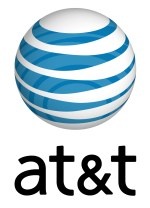 Cellular South, a regional mobile carrier nearly 900,000 customers in the southeastern US, has joined the Justice Department's antitrust lawsuit to block the buyout of T-Mobile USA by AT&T.
Cellular South, a regional mobile carrier nearly 900,000 customers in the southeastern US, has joined the Justice Department's antitrust lawsuit to block the buyout of T-Mobile USA by AT&T.
Cellular South's criticisms are similar to those expressed by the Department Of Justice and the attorneys general from various states. However, they also add an additional detail of particular importance to smaller providers.
Specifically, they believe the loss of T-Mobile will lead to higher prices for roaming deals, which are essential to carriers who don't have a nationwide network of their own.
Their complaint alleges, "The proposed merger will allow AT&T to increase this influence by eliminating T-Mobile as an independent source of demand for wireless devices and an independent roaming partner."
Parties in the lawsuit are scheduled to meet tomorrow for a conference, at which time the judge expects them to discuss terms for a potential settlement.
Given the growing number of voices, both in the wireless industry and government, aligning themselves against the deal, a settlement now seems unlikely.
In addition to Cellular South, the DOJ also has AT&T and T-Mobile rival Sprint, the third largest US mobile carrier in their corner. If the deal is approved, AT&T would become the largest carrier.
Currently there are only four national mobile providers in the US. Verizon Wireless is the largest, followed by AT&T, Sprint, and then T-Mobile.
Specifically, they believe the loss of T-Mobile will lead to higher prices for roaming deals, which are essential to carriers who don't have a nationwide network of their own.
Their complaint alleges, "The proposed merger will allow AT&T to increase this influence by eliminating T-Mobile as an independent source of demand for wireless devices and an independent roaming partner."
Parties in the lawsuit are scheduled to meet tomorrow for a conference, at which time the judge expects them to discuss terms for a potential settlement.
Given the growing number of voices, both in the wireless industry and government, aligning themselves against the deal, a settlement now seems unlikely.
In addition to Cellular South, the DOJ also has AT&T and T-Mobile rival Sprint, the third largest US mobile carrier in their corner. If the deal is approved, AT&T would become the largest carrier.
Currently there are only four national mobile providers in the US. Verizon Wireless is the largest, followed by AT&T, Sprint, and then T-Mobile.











